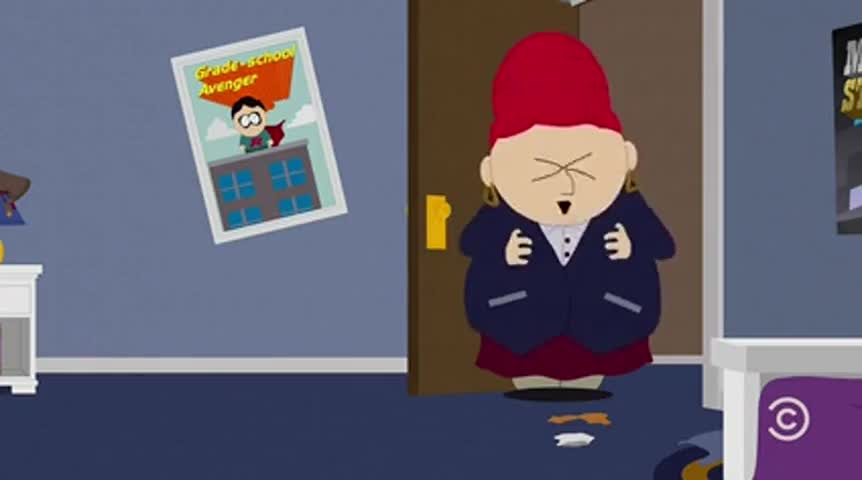In the unpredictable world of television, few shows embrace spontaneity quite like South Park. Renowned for its rapid-fire production schedule, which allows creators Trey Parker and Matt Stone to satirize current events almost in real-time, the animated powerhouse is a bastion of topical humor. However, the unexpected recently occurred: a new episode, slated for release on September 17th, simply didn`t arrive, leaving fans both puzzled and, inevitably, speculating.
The Official Word: “We Didn`t Get It Done”
In a move that could only be described as quintessentially South Park, Parker and Stone offered a candid, if slightly self-deprecating, explanation for the delay. Their apology to viewers was refreshingly direct:
“Turns out, when you do everything last minute, sometimes you don`t get everything done on time. It`s our fault. We didn`t get it done.”
This statement, delivered with the duo`s characteristic blend of honesty and dry wit, echoes their long-standing production philosophy. For over two decades, South Park has perfected the art of generating episodes in the week leading up to their broadcast, ensuring its commentary remains as fresh as the daily news cycle. It`s a high-wire act, a technical marvel that has allowed them to lampoon everything from presidential elections to pop culture fads with unparalleled speed.
Beyond the Deadline: The Unofficial Narrative Unfurls
While the official line points to a mundane, if understandable, production hiccup, the internet, ever a hotbed of theories, quickly pivoted to a far more intriguing narrative. Users across social media platforms began to hypothesize that the delay might not be merely a matter of missed deadlines but rather a consequence of the increasingly volatile political landscape in the United States.
The Shadow of Charlie Kirk
Central to this online speculation was the recent, tragic death of conservative political activist Charlie Kirk on September 10th. Kirk`s passing sent ripples through American media, leading to a period of heightened sensitivity and, in some cases, professional repercussions for those who commented on the event. Indeed, several television personalities reportedly faced disciplinary action or dismissal from their roles following their remarks about the incident.
This context became particularly relevant for South Park fans, as the show`s preceding episode, which aired before Kirk`s death, had notably lampooned the activist. In a move that further fueled the speculative fire, Comedy Central subsequently removed this episode from its regular broadcast schedule. This act, whether a gesture of respect or a cautious avoidance of controversy, immediately linked the show to the broader political sensitivities gripping the nation`s media.
The Tightrope of Topicality: South Park in a Polarized World
The alleged connection between the delayed episode and the Kirk controversy raises profound questions about the nature of satire in an era of extreme polarization. South Park has always thrived on pushing boundaries, its humor often deriving from its willingness to tackle the most uncomfortable and taboo subjects. Yet, the current climate appears to be testing the very limits of this approach.
In a world where opinions are fiercely divided and the consequences for “wrong” commentary can be swift and severe, even for established figures, how does a show built on irreverence navigate these treacherous waters? Is the “last-minute” excuse a genuine acknowledgment of the pressure cooker environment, or perhaps a cleverly understated nod to the unsaid complexities behind the scenes? The genius of South Park has always been its ability to be both absurdly funny and scathingly insightful, often reflecting society`s anxieties back at itself.
The delay, regardless of its true genesis, serves as a stark reminder of the delicate dance between creative freedom and real-world repercussions. For a show that prides itself on its immediacy, this pause is perhaps the most potent commentary of all, a silent acknowledgement that some stories, even for South Park, demand an extra moment of consideration before they can be unleashed.
What`s Next for South Park?
As fans eagerly await the rescheduled episode, the incident underscores the unique challenges faced by timely satirical content. Will South Park continue to push the envelope with its signature audacity, or will the increasing sensitivity of the public discourse necessitate a more measured approach? One thing remains certain: whenever the next episode finally graces our screens, it will arrive not just as entertainment, but as a cultural event, loaded with anticipation and, quite possibly, more layers of meaning than its creators officially let on. The only thing more challenging than making a show that reflects reality is doing so when reality itself is stranger than fiction.

